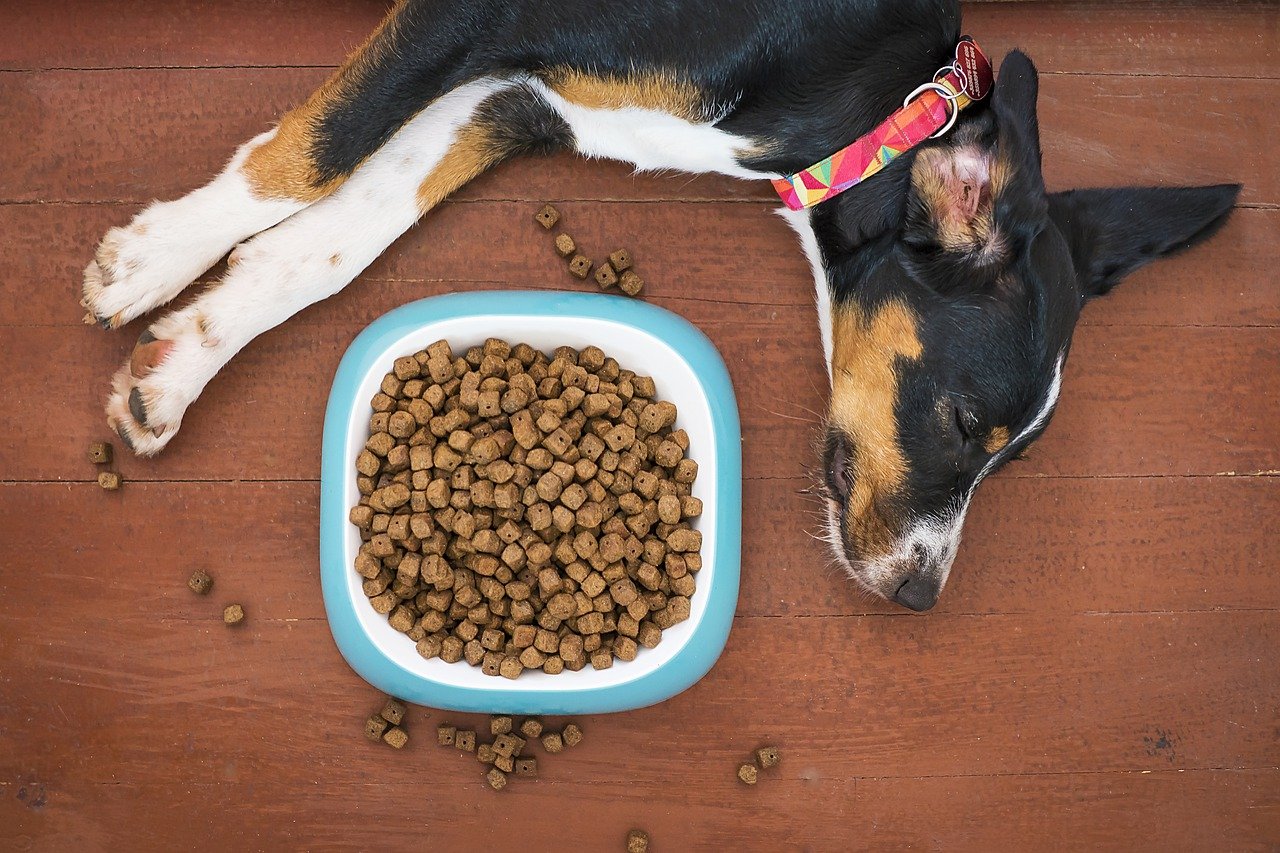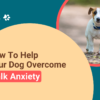
Food is necessary for the survival of all life forms on the planet. How long can dogs go without food? Everyone would become ill and finally die. Your dog is no exception; in order to remain healthy and powerful, he must consume a well-balanced and sufficient diet. But what if your dog refuses to eat his dog food when he should?
First and foremost, don’t be overly concerned about it! Dogs are capable of surviving for extended periods of time without food. As a result, you’ll have a lot of reading to do to learn more about why they might not be eating, as well as what you can do to assist your perfect pet regain their appetite as soon as possible.
Dog Starvation Compared to Humans
What exactly do we know about dog starvation? And at what point is a dog vulnerable to the adverse consequences of starvation? Although scientific research are limited, it has been demonstrated that when people lose 35-50 percent of their optimal body weight, their death rate increases.
According to animal pathologists, the same parameters may apply to dogs as well. In other words, when a dog’s weight drops to approximately 33 pounds or less, he or she is in danger of dying from starvation. A 20-pound dog may lose as much as 13 pounds before he or she is in imminent danger of dying.
How Long Can a Dog Go Without Eating?
All dogs are unique individuals who differ in a numerous ways from one another. In order to avoid making broad generalizations about how long a specific dog can go without eating, veterinarians often treat inappetence (a reduced appetite) and anorexia (food rejection) on a case-by-case basis.
Having said that, the majority of healthy dogs will be able to survive for approximately 3 to 5 days without eating. In contrast to this, dogs who are underweight, ill, or who are extremely old or very young may not be able to last as long and may require veterinarian care sooner than the recommended 3 to 5 day time frame.
If your dog is pregnant, has recently given birth, or is nursing, it’s especially important to provide food to her because she is going to require it sooner than dogs in good health.
How Long Dogs can Survive Without Food Depends on Different Factors
Starting Body Condition
Although it may seem obvious, but a dog’s initial body condition has a direct impact on his or her ability to go without food for an extended period of time. Dogs who start out normal or above-normal weight should be able to survive longer periods of time without food than dogs who were already skinny before starvation.
Age
Age could be a significant factor for young and old dogs when it comes to starving, since they are more vulnerable to its consequences. We just do not have enough information about how a dog’s ability to go without food changes as he ages. Death due to starvation was found to be uncommon in dogs younger than six months old, according to one study.
Environmental Factors
A dog’s ability to resist famine seems to be affected by environmental conditions such as being kept outdoors in bad weather. It has been suggested by researchers that cold weather may be more difficult on a starving dog than hot weather.
Why Dogs Won’t Eat
Mental Health or Emotional Issues
Dogs who are suffering from stress, anxiety, depression, and other mental and emotional health problems may find it difficult to eat. This shouldn’t come as a surprise because people who are facing these similar difficulties frequently experience a loss of appetite.
Fortunately, most mental and emotional health problems may be resolved with treatment. In many circumstances, you will be able to accomplish this on your own by simply identifying what is causing your dog to be sad or depressed and making the necessary changes.
Example: If your dog is depressed, you may find that simply spending more time with him, rewarding him with a super-cool new toy, increasing his activity, or going on a fun outing may be enough to make him feel better.
Medications
Some medications can cause your dog to lose his appetite or to feel sick, making him disinterested in eating. Whenever your dog is on a regular medication, start by reading the label to see if there is any text that warns about overdosing.
It’s also a good idea to get in touch with your veterinarian and inform him or her that your dog appears to have lost his or her appetite. This will not only keep your veterinarian informed, but it may also allow your veterinarian to adjust your dog’s prescription to a different medicine that will not affect his appetite.
May be Your Dog doesn’t Like the Meal
Examine the quality of your dog’s meal if your dog appears to be in good health and the only alarming thing you can notice is that he isn’t eating. It’s possible that the problem is with the food itself.
When you switch your dog’s food, it’s typical for some dogs to become disinterested in the new formula. Some dogs would completely refuse to eat the meal. It’s possible that the problem is with the dog food rather than with the dog. It’s possible that providing your dog with a new supply of dog food will resolve the problem.
Some dogs may be prone to digestive problems due to a delicate digestive system. It’s possible that your dog has allergies that you’re not aware of. If you are unable to determine what is causing your dog’s sudden dislike of food, simply contact your veterinarian.
Social Issues
If you have more than one pet, it is important to investigate whether social conflict is causing him to become unable to consume his food. He may be intimidated during mealtimes by another dog that is quietly or overtly trying to be threatening.
If you find that this is the cause of your dog’s non-eating, you may need to start feeding your pets in separate rooms or at different times to avoid any conflicts. It may also be beneficial to give your pets a little more “room” to roam about. Perhaps you’d like to separate them for a few hours each day to avoid them becoming irritated with one another.
May be Your Dog is Just Picky
While cats are stereotyped as picky eaters, some dogs may be just as picky about what they eat as cats are. If this is the case, the only thing you can do is experiment with different foods until he finds one that he enjoys, and then you stay with it.
Patience is required because you may have to spend a lot of money if you’re looking for a meal that works with your dog. However, if you work hard, you will eventually find success!
The Importance of Water
You may be so preoccupied with your dog’s meal consumption that you completely overlook his/her water intake. Water consumption is arguably more significant than food consumption. If your dog is refusing to eat, you’ll want to encourage them to drink plenty of water to keep them hydrated while they’re waiting for their meal.
It is possible for dogs to survive without food longer than water, their tolerance for not drinking water is significantly lower. Dogs can only survive for three days without water intake, but they can survive for five to seven days or even longer without food.
Realistically, you don’t want to push your dog’s limits, but you also don’t want to force your dog to drink, as this can result in aspiration pneumonia. Immediately getting your dog to the vet if they have not eaten or drunk for longer than 48 hours is imperative.
What You Can Do
Whatever it is that is causing your dog to turn his nose up at his food, you must take him to the veterinarian in order to get to the bottom of the problem and re-establish his appetite. Only a specialist can accurately evaluate the problem and restore your pup’s health!
At the end of the day, all you have to do is listen to your doctor’s advise and follow it through. If your dog requires medication to rekindle the flames of his hunger, make sure to give it to him. If he simply requires more time with you in order to be okay, show him some tender loving care. Keep in mind that your dog requires your care just as much as he requires food.






